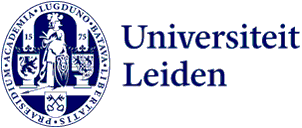
As many as a hundred ideas in minor Living Education Lab
Students presented the prototypes of educational tools they made in the first ten weeks of the new minor Living Education Lab. We asked two students and a teacher about their first experiences in this minor.
Cooperation between Leiden, Delft and Rotterdam
Leiden University, Erasmus University Rotterdam and TUDelft jointly organise this minor. Students from different bachelors from these three universities participate, from Psychology to Environmental Science.
Konrad Barbers (Computer Science and Engineering student at TU Delft) and Shifa Diani Satrio (Psychology student at Leiden University) attended the first edition of this minor. Konrad appreciated the knowledge sharing from different backgrounds in his group: 'Everyone had something interesting to contribute.'
According to Diani, the collaboration really added value. For example, the psychology students were concerned about what people would think of the product. The Delft students had a lot of ideas and knowledge on how to implement the ideas. ‘My teammate who takes environmental studies is really good at making sure our final ideas and excecution stay simple even after hectic brainstorming. So even if you study something unrelated to education or technology, everyone can bring a valuable skill to the table we can each learn from.’

Design thinking
The students worked in three groups, based on their interests. In ten weeks, they designed a prototype for a tool that can be used to solve a problem in education. First, the group chose a problem, which they then tried to solve through design thinking. They went through the five stages of design thinking:
- Empathise with the problem (empathise)
- Define the problem (define)
- Gather ideas and decide what to do (ideate)
- Develop a prototype (prototype)
- Test and adapt the final product (test).
Diani found working this way very stimulating: 'You had to come up with up to a hundred ideas.'
Little feedback and lack of motivation
Students often receive too little feedback and experience too little agency in their learning. An interesting case for Konrad's group. They designed a platform where students themselves can create questions for each other, answer them, and give feedback on them. The teacher also benefits. Because students make up their own questions, the teacher does not have to do this, which in turn reduces the workload.
Lack of motivation is the most common problem. That was the outcome of the questionnaire Diani's group took among students. But how can you increase individual motivation? One way is to make learning more social. Therefore, the group created a tool in which students answer a question together. First, each works on their own and then the group decides together what the answer should be.
Fun and stimulating
Konrad: 'I had a lot of fun; working in a small group means you get to know each other well, and learn from each other.' Diani: 'The minor is suitable for anyone interested in technology or education. 'The group stimulates you and I learned to communicate better.' Konrad and Diani definitely recommend other students to take this minor.

Real-world problems
Lysanne Post (ICLON), lecturer in the minor, explains that in the second part of the minor, students get to work with real cases. They choose from cases that people from education or educational research bring in. For example, there is research at ICLON where a chatbot was developed to 'talk' to a girl from Roman times. How do you get students to ask better questions with this chatbot? And how can teachers embed this properly in their teaching?
Lysanne designed and developed the minor together with teachers from Delft and Rotterdam. ‘Besides the teachers, we also have guest speakers; from ICLON and Delft: PhD students. From Rotterdam we have guest speakers from the field with examples of design thinking.'
Minor Living Education Lab
This minor combines the domains of design thinking and technology-enhanced learning and teaching with interdisciplinary group work. It is meant for students who
- Are interested in education and digital technology and want to experience what it is like to solve a real-life problem in a multidisciplinary group of peers and education professionals;
- Want to look behind the scenes of higher and secondary education;
- Are interested in the impact of Educational Technologies.
This minor came about through a collaboration between Leiden University, TU Delft and Erasmus University Rotterdam.
